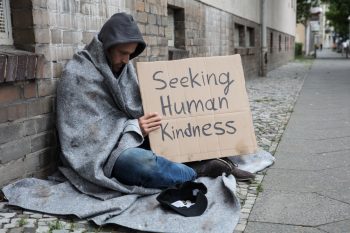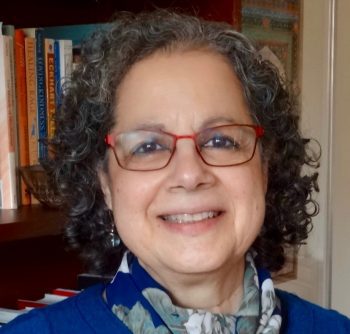July 24th, 2018
By
Guest writer for Wake Up World
We’re the wealthiest country on earth, but over 40 percent of us live in or near poverty.
Are we Americans unworthy? That’s certainly the message we’re getting from our government. Over 40 percent of us are poor or low-income. How is that possible in the wealthiest country in history?
Explains UN rapporteur on poverty Philip Alston, “The United States is alone among developed countries in insisting that while human rights are of fundamental importance, they do not include rights that guard against dying of hunger, dying from a lack of access to affordable health care, or growing up in a context of total deprivation.”
Alston says that “the persistence of extreme poverty is a political choice made by those in power” — which means that “with political will, it could readily be eliminated.” Unfortunately, our government’s political will is increasingly exercised to make things more, not less, difficult for us.
Most Americans don’t know it, but in 1977 the U.S. actually signed an international treaty called the UN Covenant on Economic, Social, and Cultural Rights, which mandates government responsibility to ensure their citizens do more than merely survive. Unfortunately, one U.S. administration after the other has completely disregarded it, and Congress never ratified it.
Our leaders have apparently judged that we either don’t need — or don’t deserve — things like an adequate standard of living and universal health care. As one dizzy U.S. congressman claims, “Nobody dies because they don’t have access to health care.”
164 countries have ratified the treaty, but ours won’t. Are their people more deserving than we are? Is it something we’ve done?
It can’t be because we’re doing fine without those rights. I mean, look at our minimum wage. There isn’t a “single county or metropolitan area,” as a Guardian report put it, where a minimum wage can get you a “modest two-bedroom home, which the federal government defines as paying less than 30 percent of a household’s income for rent and utilities.”
The price we pay for this disregard for our fundamental human rights begins at the beginning of our lives. Indeed, many of us struggle to survive to our first birthday. Citing figures from the Centers for Disease Control, the Washington Post declared our infant mortality rate “a national embarrassment,” noting that it’s higher “than any of the other 27 wealthy countries.”
That’s painful enough. But they went on: “Despite health care spending levels that are significantly higher than any other country in the world, a baby born in the U.S. is less likely to see his first birthday than one born in Hungary, Poland, or Slovakia. Or in Belarus. Or in Cuba, for that matter.”
Sad! And a recent UNICEF assessment of how children are faring found the U.S. near the bottom of 41 rich countries when it came to meeting goals on child poverty, hunger, health, and education. Tragic!
Well, there’s an important difference between us and other prosperous countries: Their citizens expect and demand more of their governments than we do of ours. And governments do only as much as their citizens expect — not more! So why do we accept so little from ours? How have we come to deem ourselves less worthy than others?
About the author:
Mona Younis: Over the course of nearly 30 years, I have worked in different capacities that share a commitment to supporting progressive social and political change. Inspired by social movements for justice, equality, and accountability, I have grappled with questions of the effectiveness and success of movements as a participant, as an observer, and as a student. The desire to understand how they work and when they succeed motivated my doctoral research in sociology at the University of California, Berkeley. I have since concentrated on what can be done to strengthen human rights movements in the U.S. and around the world. I bring to my consulting assignments experience gained in small and large non-profits and foundations in the U.S. and abroad.
In addition, I co-founded two human rights funds that support grassroots initiatives throughout the world: the Fund for Global Human Rights and the Arab Human Rights Fund.
Learn more at www.monayounis.com
Distributed by OtherWords.org, where this article first appeared.

If you've ever found value in our articles, we'd greatly appreciate your support by purchasing Mindful Meditation Techniques for Kids - A Practical Guide for Adults to Empower Kids with the Gift of Inner Peace and Resilience for Life.
In the spirit of mindfulness, we encourage you to choose the paperback version. Delve into its pages away from screen glare and notifications, allowing yourself to fully immerse in the transformative practices within. The physical book enriches the learning process and serves as a tangible commitment to mindfulness, easily shared among family and friends.
Over the past few years, Wake Up World has faced significant online censorship, impacting our financial ability to stay online. Instead of soliciting donations, we're exploring win-win solutions with our readers to remain financially viable. Moving into book publishing, we hope to secure ongoing funds to continue our mission. With over 8,500 articles published in the past 13 years, we are committed to keeping our content free and accessible to everyone, without resorting to a paywall.








